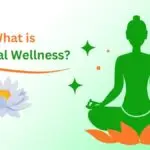Social media has become the most used platform in society which is why it is important to take care of it. It is through social media platforms – we interact with friends, families, colleagues and even some of our favorite celebrities, news, entertainment, and among other things, Facebook, Twitter, Instagram, Snapchat and TikTok. But as with most things in life, social media is not without its drawbacks. It may affect our social wellness.
In our hyper-connected digital age, social media has become an integral part of our lives. It’s a virtual town square where we gather, share, and connect. But how does it impact our overall well-being, especially our social wellness? Lets explore!
What is Social Wellness?
Social wellness, encompasses the capacity to create and sustain social relationships, interact positively with people, and function effectively as a member of society. Individuals with high social wellness can easily share their ideas with other people. They prevent violations of their rights of other people’s rights and dignity of other people.
- Sets the foundation for the individual to be accepted, valued and appreciated by many people.
- Helps to improve the state of mental health, life expectancy and, in general, the quality of a meaningful and fulfilling life.
- Enhance self-esteem, perceived ability to cope with life changes, and stress-reducing coping skills.
Ways Social Media Affects Our Social Wellness
Here are some of the major ways social media affects our social health and connections:
1. Enhanced Connections
Social media enables users to enhance and endorse real-life bonds. It allows people to maintain connections with friends and families even when they cannot see them often due to distance. With posts, videos, and messages, we can also share life events, minor or major, on the social networking site.
These acts entail commenting and reacting to content on a platform because they foster user engagement. Through social media channels, you can easily interact with friends that you may have not seen for quite some time or even a distant relative. On balance, it can increase social capital and help people not feel lonely.
2. Comparison and FOMO
When people get to see glimpses into the lives of friends or the people they admire. They are likely to experience FOMO (Fear of missing out) and negative social comparison. The problem is that we only see bits and pieces of other people’s lives, and often only the glamorous and fun moments. Which leads to the belief that our lives are lacking.
However getting to attend events or activities that we were not invited to can lead to FOMO. Comparison and FOMO seem to be equally toxic because these feelings lead to worse self-esteem and feelings of being left out or lonely.
3. Cyberbullying and Trolling
However, social platforms also introduce things like cyberbullying, trolling, and other forms of harassment. It’s not shocking as people write things on social media that they would not utter in the real world. Suffering from cruelty, insults, racism, sexism, or any other form of abuse demeans, harms psychological health, and destroys social trust.
Such behavior can make one lose faith in humanity – and even seeing someone else behave in this manner is enough to turn one’s stomach. Sites attempt to curb this and yet harassment is often overlooked by the moderators.
4. Reinforcing Echo Chambers
The way we are presented with content, including through social media algorithms that serve us content. They believe aligns with our interests leads to echo chambers where users are slowly fed only the content they are most interested in. Instead of our conceptions being moderated and balanced out, they are reaffirmed and amplified.
This leads to partisanship and binary ways of thinking. Frequent exposure to small-minded philosophies decreases our ability to be open-minded, kind, logical, and part of a society. It includes people of other cultures.
5. Social Pressure and Comparisons
Teenagers in particular confess to having issues with social relations that are prompted by social networks. These are the pressures that exist within social media such as the number of likes and followers, appearance in the pictures, facial expressions, and the way of life depicted in the pictures.
While comparing oneself to others and the wish to be popular and fit in a certain group, feelings of anxiousness and the deterioration of one’s self-esteem can emerge, and that during the already sensitive phase of adolescence.
6. Digital-Physical Life Balance
Excessive use of social media platforms reduces the part of the day that is invested in face-to-face social interactions such as meeting friends. In essence, generating endless content actively keeps us from engaging with people in real life, which can help with bonding.
It is associated with higher levels of loneliness as the individual replaces actual social interactions. Ensure that your online activities are complemented with equal or similar time spent in physical interaction with other people.
7. Addiction and Distraction
Twitter, Facebook, and all the other types of social networks can turn into a sort of obsession due to their endless stream of content and instant notifications. The more we engage with it, the more our neurons are shaped to seek the high of dopamine release.
The problem of social media addiction is no longer something that can be dismissed as people’s inability to overcome it has significantly affected work, relationships, and even physical and mental health.
8. Spreading Misinformation
The internet provides a megaphone for every individual and makes it very simple to get fake news to the masses quickly. Fake or fake news circulates rapidly so that they can be independently verified.
This distorts knowledge and contributes to phenomena such as climate change scepticism, conspiracy theories, fear, and increased party-political fragmentation.
9. Widening Inequality Gaps
On the one hand, social media helps some people converge across sociocultural similarities and differences; on the other hand, it exacerbates the inequality gaps subtly. This is especially the case with holiday pictures or the many material items that friends can purchase and display online.
It is sad to realize that despite the considerable progress made in society there are still people from marginalized groups who are discriminated against and abused on social platforms. Celeb culture is pervasive and misleading, and influencers pave the way for unattainable goals.
10. Social Skills Atrophy
As much as technology helps us in our daily lives, it can also hinder our social skills since we are mostly confined to using digital communication, and we are not good at making eye contact, body language, or speaking without a script.
We forget the details or how to practice things such as using tones, perceiving moods, finding ways to disagree, and so on. The dynamic of the digital replacing the interpersonal makes people end up uncomfortable, misunderstanding each other, and experiencing relational issues.
Final Words
Therefore, it is clear that social media platforms do help in the process of maintaining social relationships but at the same time, they are also a cause of decline in effective communication skills, low self-esteem, and poor mental health among people.
However social media, when done mindfully with an understanding of one’s own needs and desires as well as a correct use intended to cultivate genuine social connections, may improve our social health as well. Moderation is key.







